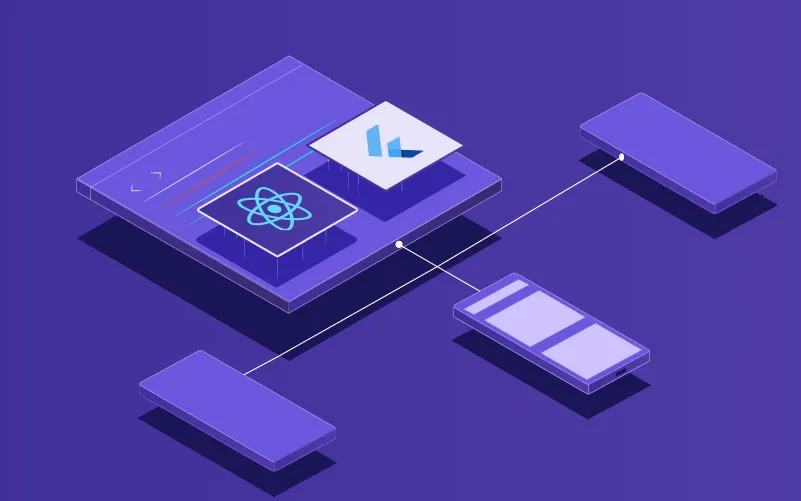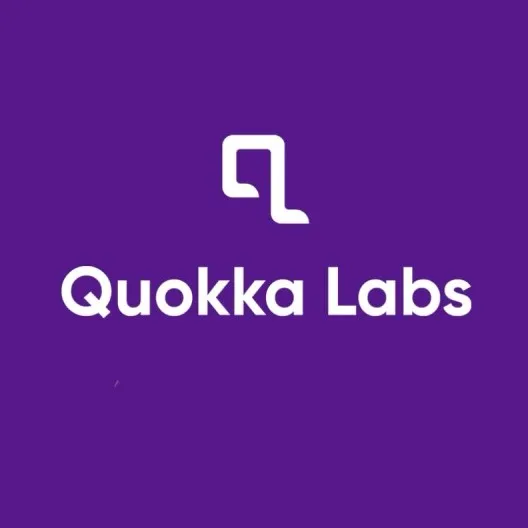Technology


7 min


Unleash your app development potential with our comprehensive comparison of React Native and Flutter. Dive into the dynamic battle between these two platforms and discover which one reigns supreme. From performance to UI capabilities, we break down the factors that matter most. Stay ahead of the game and make an informed choice for your next mobile app development venture.

By Quokkalabs LLP
30 Sep, 2021
For every mobile app development company, React Native vs. Flutter are great tools for building applications, especially Cross-Platform App Development; the question still hovers around the head of the developer as to which platform supersedes the other.
A developer's decisions may include factors like performance, cross-platform functionality, responsiveness, and so on. Flutter vs. React Native, both frameworks have their own benefits and drawbacks that sometimes make developers switch or stay with the platform they're currently super loyal to.
But we will take a more significant leap and closely scrutinize both these Cross-Platform Application Development platforms to conclude! (hopefully)!
Also Read:- How To Hire React Developer In 2022: A Step-by-Step Guide For Recruiters
Let's start with a bit of backdrop.
Facebook open-sourced a new platform to create mobile apps called React Native. Most React Native app development companies or cross-platform app development companies let you use the widely used programming language JavaScript and deploy your code on many platforms, including iOS, Android, and the web.
Read More: Ionic vs React Native: Best fit for Mobile App Development in 2023
Features that stand out when using React Native are as follows: -
Read More:- 4 React Native App Projects You Should Practice As A Beginner
Wix
Wix, a popular website builder, embraced React Native to create their mobile app. By utilizing React Native's capabilities, Wix was able to offer their users a seamless experience for managing and updating their websites, providing a consistent interface across iOS and Android devices.
Discord
Discord, a widely used communication platform for gamers, harnessed the power of React Native to develop their mobile app. React Native allowed Discord to deliver a responsive and visually immersive user interface, enhancing the gaming community's communication experience on both major mobile platforms.
Tesla
Tesla, the renowned electric vehicle manufacturer, employed React Native in the creation of their mobile app. React Native's efficiency and performance optimization enabled Tesla to deliver a feature-rich app, providing vehicle control, a charging station locator, and real-time data visualization to Tesla owners.
Coinbase
Coinbase, a leading cryptocurrency exchange platform, leveraged React Native for their mobile app development. React Native's cross-platform capabilities enabled Coinbase to build a user-friendly app allowing users to securely trade and manage their digital assets on iOS and Android devices.
Trello
Trello, a popular project management tool, utilized React Native to create their mobile app. React Native's ability to handle complex interfaces and deliver a smooth user experience allowed Trello to extend its platform's functionalities to mobile devices, enabling users to manage their projects on the go.
TikTok
TikTok, the widely used social media platform for short-form videos, adopted React Native for their mobile app development. React Native allowed TikTok to deliver an immersive and engaging user interface, ensuring seamless video playback, real-time interactions, and a dynamic content discovery experience.
Flutter is a tool used by a mobile app development company for cross-platform application development that can run on Android, iOS, Linux, Windows, Google Fuchsia, and the web. It's not tied to any framework so that you can use it with your existing code.
Read More:- Tips To Make The Most Of Your Flutter Application Development
Also Read:- What is New in Flutter 3.3?
Snippet
Snippet is a popular code snippet manager app built with Flutter. It allows developers to organize and access their code snippets efficiently. The app's clean and intuitive user interface and robust search and categorization features demonstrate Flutter's capability to handle complex data structures and deliver a seamless coding experience.
Kaleidoscope
Kaleidoscope is a visually stunning photo editing app developed using Flutter. With its array of filters, effects, and editing tools, the app showcases Flutter's ability to create a rich and interactive editing experience, enabling users to transform their photos quickly.
Dribbble
Dribbble, a renowned platform for designers to showcase their work, embraced Flutter for their mobile app. The app's smooth animations, fluid transitions, and attention to design details highlight Flutter's potential to create visually appealing and interactive platforms for creative professionals.
Xeropan
Xeropan is an educational language-learning app that utilizes Flutter's capabilities. The app offers interactive lessons, quizzes, and speech recognition features to help users learn foreign languages effectively. Flutter's ability to handle real-time user input and deliver responsive feedback contributes to an engaging and immersive language learning experience.
Coach.me
Coach.me is a goal-tracking and habit-building app built with Flutter. The app's intuitive interface, personalized coaching features, and progress-tracking capabilities demonstrate Flutter's capacity to create user-friendly and goal-oriented applications that facilitate personal growth and development.
Reflect
Reflect is a meditation and mindfulness app that leverages Flutter's capabilities. With its soothing audio-guided sessions, calming visuals, and user-friendly interface, the app exemplifies Flutter's ability to create immersive and relaxing experiences that promote well-being.
Also Read:- How to Set Up CI/CD Pipeline for Flutter Projects Using Jenkins & BitBucket?
| Parameter | Flutter App | React Native App |
|---|---|---|
| Release Date | The initial release was in May 2017 and was introduced by Google. | The release was in June 2015 and was introduced by Facebook. |
| Programming Language | It is backed by Dart to create mobile apps. | It is backed by JavaScript to create mobile apps. |
| User Interface | Widget libraries can help you push out code faster. It makes it easy to add several interactive elements hassle-free. | Libraries like native UI controllers can help you create native user interfaces with less work. |
| Hot Reloading | Effective hot reloading | Decent hot reloading supported |
| Architectural Overview | The architectural layout followed is Business Logic Component (BLoC) | The architectural followed is Redux and Flux |
| Documentation | Flutter maintains a highly organized documentation procedure. | Except for the difference between documentation procedures, react native is easy to work with. |
| Preference | The use of Flutter is rising every day, creating a positive feedback loop that makes people rapidly switch their everyday platforms. | React native gets the upper hand among the developers still inclined towards staying loyal to this platform for their mobile development stage. |
| Performance | C and C++ resemble machine languages and can offer better native performance than other programming languages. | The end performance of react native is often less impactful and slower than the end performance of iOS and Android apps. |
| Testing | Flutter has its own testing framework, which includes integration, unit, and widget tests. | With React Native, you'll use third-party libraries to get testing tools. |
| Third-party packages | Flutter allows you to choose from a number of packages based on your development needs. | As a mature platform, react-native has a larger pool of components and resources, such as third-party packages. |
| Reusable code | Flexibility to reuse the codes without any restrictions. | The reusability of codes is permitted - with some exceptions. |
| Community reach | While Flutter believes they have a superior product, they need more marketing and social outreach to build a credible community like React native. | The popularity of React Native can be seen in the fact that there are already a lot of developers who are familiar with it. |
| Development time | The apps get built and developed fast. | The apps get built and developed dash slower than flutter. |
| Popular Apps | Some popular apps are as follows:- Google Ads, Hamilton | Popular apps- Linkedin, Instagram, Facebook, Skype, Bloomberg |
| IDE support | While Android support has many features, it can't be used to implement IDE support, IntelliJ IDEA, etc. | IDE support is not a concern given the due importance of JS support. |
We must acknowledge that Flutter has experienced significant growth and is no longer considered a small community. However, it is still catching up to the vast user base and well-established nature of React Native.
Both platforms, React Native vs. Flutter, have their merits, making it difficult to provide a definitive recommendation. Ultimately, the choice between Flutter and React Native depends on your personal preferences and requirements.
Quokka Labs is a leading mobile app development company that caters to businesses of all sizes. Our services encompass a wide range of offerings, including React Native app development, Flutter application development, and the creation of standalone iOS and Android apps. We leverage the latest technologies, employ robust project management tools, and foster efficient teamwork to deliver exceptional software solutions that drive the success of your digital projects.
Contact us today with details about your project to receive a free quote.
What are React Native and Flutter, and how do they differ in mobile app development?
React Native vs. Flutter are two popular cross-platform frameworks used for mobile app development. React Native is a JavaScript framework developed by Facebook, while Flutter is a UI toolkit developed by Google. The main difference lies in their underlying technologies: React Native uses JavaScript to build native apps, while Flutter uses Dart to create a custom rendering engine. React Native relies on native components, whereas Flutter renders its own widgets.
Which platform offers better performance: React Native or Flutter?
Both React Native vs. Flutter strive to provide good performance, but there are some differences. React Native relies on native components, which can lead to slightly better performance as they leverage the device's capabilities. However, Flutter uses a custom rendering engine, allowing for highly optimized UI rendering and better performance on certain tasks, such as animations. Ultimately, the performance can vary based on specific app requirements and optimizations.
Which framework offers better UI/UX design capabilities: React Native or Flutter?
Both Flutter vs. React Native offers powerful UI/UX design capabilities but approach it differently. React Native uses native components, allowing developers to leverage the platform-specific UI elements for a more native look and feel. Flutter, on the other hand, has its own set of customizable widgets, offering a consistent UI across different platforms. Flutter's widget system provides more flexibility in designing custom UI elements. The choice depends on whether you prefer platform-specific UI or a consistent UI across platforms.
Which platform has better community support and available resources for developers: Flutter vs. React Native?
React Native has been around for a longer time, which has resulted in a larger community and a vast number of available resources, such as libraries, plugins, and tutorials. It has gained wide adoption, and many companies have built apps using React Native. Flutter, though relatively newer, has been rapidly growing in popularity and has an active and passionate community. While the Flutter community might be smaller, it is growing quickly, and Google provides extensive documentation and resources. The choice depends on your preference and the level of support you require.
How easy is learning and starting with Flutter vs. React Native?
React Native vs. Flutter; both have their different learning curves. React Native, being based on JavaScript, is relatively easier to pick up for web developers familiar with JavaScript and React. Flutter, with its Dart language and widget-based approach, may require a bit more time to learn, especially for developers new to these technologies. However, both frameworks have excellent documentation, community support, and extensive resources, making it feasible to get started with either of them with some dedication and practice.
Which framework offers better cross-platform compatibility: Flutter vs. React Native?
Both React Native and Flutter excel in cross-platform compatibility. React Native allows you to write a single codebase in JavaScript that can be used for both iOS and Android platforms, leveraging platform-specific components. Flutter, on the other hand, compiles to native ARM code, resulting in highly performant apps across platforms. It also offers a unified development experience, enabling developers to create apps for iOS, Android, and even the web from a single codebase. The choice depends on your specific project requirements and the platforms you want to target.
Which platform has better tooling and development environment: Flutter vs. React Native?
React Native benefits from its long-standing presence and integration with well-established tools like Visual Studio Code and React Developer Tools. It has an extensive set of debugging and development tools available. Flutter, being a Google-backed framework, provides a rich set of tools, including a comprehensive IDE called Android Studio with a Flutter plugin. Developers highly regard Flutter's hot-reload feature for its fast iteration times. Ultimately, React Native vs. Flutter, both frameworks offer excellent tooling; the choice depends on your preference and familiarity with the tools.
Which platform suits large-scale and complex mobile app development: Flutter vs. React Native?
Both React Native and Flutter have been successfully used in large-scale and complex mobile app development. React Native's extensive community and the vast number of available libraries make it a good choice for larger projects. It has a mature ecosystem with robust solutions for various use cases. Flutter's custom rendering engine and widget system allow for high-performance UI rendering, making it suitable for complex apps with rich and customized interfaces. Ultimately, the choice depends on your development team's specific requirements and expertise.
Are there any notable companies or apps that have been built using Flutter vs. React Native?
Yes, several notable companies and apps have been built using React Native and Flutter. For React Native, companies like Facebook, Instagram, Airbnb, and Skype have used it to develop their mobile apps. Companies like Google, Alibaba, Tencent, and BMW have developed apps using the framework for Flutter. These examples showcase the capabilities of both platforms and their suitability for various applications.
What are the prospects and trends for Flutter vs. React Native in mobile app development?
React Native and Flutter have solid communities and active development, ensuring a promising future for both frameworks. React Native has a solid foundation and will continue to be widely used, especially for existing projects or when platform-specific UI is preferred. Flutter's popularity is on the rise, and its flexibility, performance, and multi-platform capabilities make it an attractive choice, especially for new projects or those seeking a consistent UI across platforms. The future of both frameworks looks bright, and staying up to date with the latest trends and updates is crucial for developers in the mobile app development landscape.
What Is an API? A Developer's Guide to Application Integration in 2025
By Dhruv Joshi
5 min read
What Is a Push Notification and Why It Matters for Your App Strategy
By Dhruv Joshi
5 min read
Top React Native Development Companies to Build Scalable Apps
By Dhruv Joshi
5 min read
How Wearable Technology Is Driving Real-Time Data Experiences in Mobile Apps
By Sannidhya Sharma
5 min read

Technology


5 min
What is an API? Learn the real meaning of Application Programming Interfaces in 2025, how APIs work, why they're essential to software development, and how to integrate them. This developer-focused guide breaks down API types, use cases, benefits, and best practices for business success.


Technology


5 min
Wearable technology is reshaping mobile apps with real-time insights, enabling smart alerts, fitness coaching, health monitoring, and more. From smart rings to AR glasses, explore how these evolving devices are creating seamless, personalized experiences across various industries and everyday life.


Technology


5 min
Augmented reality in retail helps brands drive sales and reduce returns by transforming how customers discover, try, and buy products. This blog is your guide to using AR strategically, from choosing the right use cases to launching cost-effective AR experiences that delight customers and differentiate your brand.


Feeling lost!! Book a slot and get answers to all your industry-relevant doubts